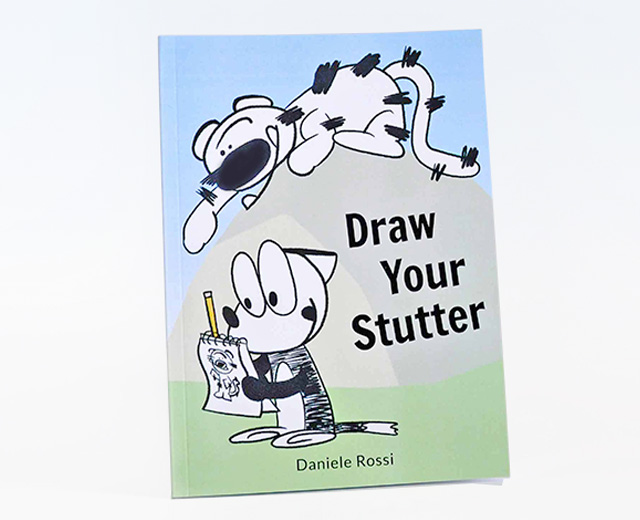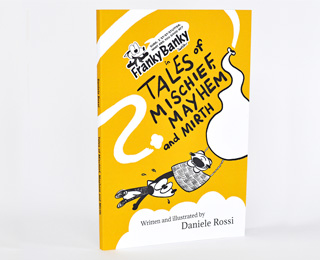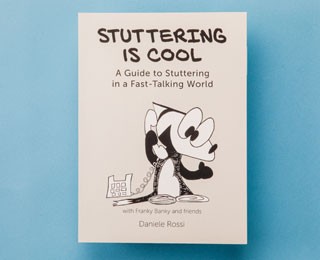Editorial guidelines around stuttering
The way we talk about stuttering is wrong
Stuttering, also known as stammering in some parts of the world, is a way of talking, a physical condition which makes it difficult to talk.
The use of stuttering in culture for comic purposes, or to indicate a character flaw or physical inadequacy, has resulted in negative and inappropriate responses to people who stutter.
Research shows that when people stumble in their speech, they are dismissed as ‘weaker’ and ‘less able’ than people who speak fluently. This seeps into the treatment, portrayal, and media coverage of people who stutter, creating a demeaning and patronising environment.
Few people who stutter are visible in our culture and the narrative surrounding the condition is mainly about how people ‘overcame’ a stutter, were ‘defeated’ by it, or how they ‘cured’ it. Words shape how we see ourselves, how others see us, and the world that we live in.
Let’s change the conversation about stuttering
Let’s find the right words to create a world where people who stutter can live with dignity and respect.
Don’t use negative words
- People do not ‘suffer from’ and are not ‘afflicted by’ stuttering. They stutter and live with it.
- A stutter is not a ‘weakness’ or ‘a defect’. It is simply a stutter.
- A stutter is not ‘terrible’ or ’debilitating’. Moments of stuttering might last longer for some.
- People don’t ‘defeat’ or ‘overcome’ their stutter. They ‘manage’ it.
- Don’t use ‘stuttering’ or ‘stammering’ as a pejorative description. It reinforces the idea that it is bad, and something people shouldn’t do.
- There are other words to describe a failing politician, project, or soccer match.
Unhelpful assumptions
- That people who stutter want to sound fluent. Some don’t, some do.
- That they should learn to breathe properly. Breathing techniques may help some people manage a stutter; they don’t remove the condition.
- That there is no longer a struggle to speak if the stutter isn’t obvious or occurs less often.
- That they can’t communicate properly. Many who stutter are adept wordsmiths. Some of our best speakers, actors, writers and poets stutter; with an appreciation of words shaped by their stutter.
- That stuttering is a negative trait. It isn’t, it’s how some people talk.
- That it is surprising they excel in their work. Stuttering isn’t a reflection of competence or intelligence.
- That people ‘grow out of their stutter’. Some people continue to stutter throughout their lives, others don’t.
Unhelpful responses
- Don’t make a joke when someone stutters.
- Don’t assume that they’re nervous or need to take a breath.
- Don’t pity someone who stutters. This may or may not capture how they feel about their stutter.
- Don’t describe someone’s stutter as “really bad today”. It suggests that they’re failing in some way when all they’re doing is talking.
- Don’t congratulate someone who stutters on their fluency. It reinforces the idea that they should strive not to stutter, and that stuttering is bad. It isn’t, it is how some people talk.
The best thing to do for someone who stutters is to not mind that they stammer.
More information on What is stuttering?.
These guidelines were written by STAMMA, the British Stammering Association who kindly gave worldwide stuttering associations and content creators like me the permission to republish. More information at Find The Right Words.
Draw Your Stutter
New! Join me on a creative journey to design your own cartoon character based on your stutter, explore your feelings about speech, and learn to draw comics. No drawing skills required!
Tales of Mischief, Mayhem and Mirth
New! Franky Banky in his first graphic novel offering encouragement to kids (and grown ups) who stutter and awareness to fluent readers as he encounters speaking situations across 15 zany stories.
Stuttering is Cool: A Guide to Stuttering in a Fast-Taking World
Tips and comics about reducing fears about stuttering in everyday situations, job interviews, dating, and more!
Fill-in-the-panels comic book
Help me draw this Franky Banky comic book by filling in the panels with your characters as they accompany Franky Banky and Ti-Ger on a visit to your school – and Ti-Ger immediately gets into mischief. The book can be coloured, too!
Stuttering awareness pins!
Spread stuttering awareness with style and humour! Five designs and phrases along with a mini-comic book.






